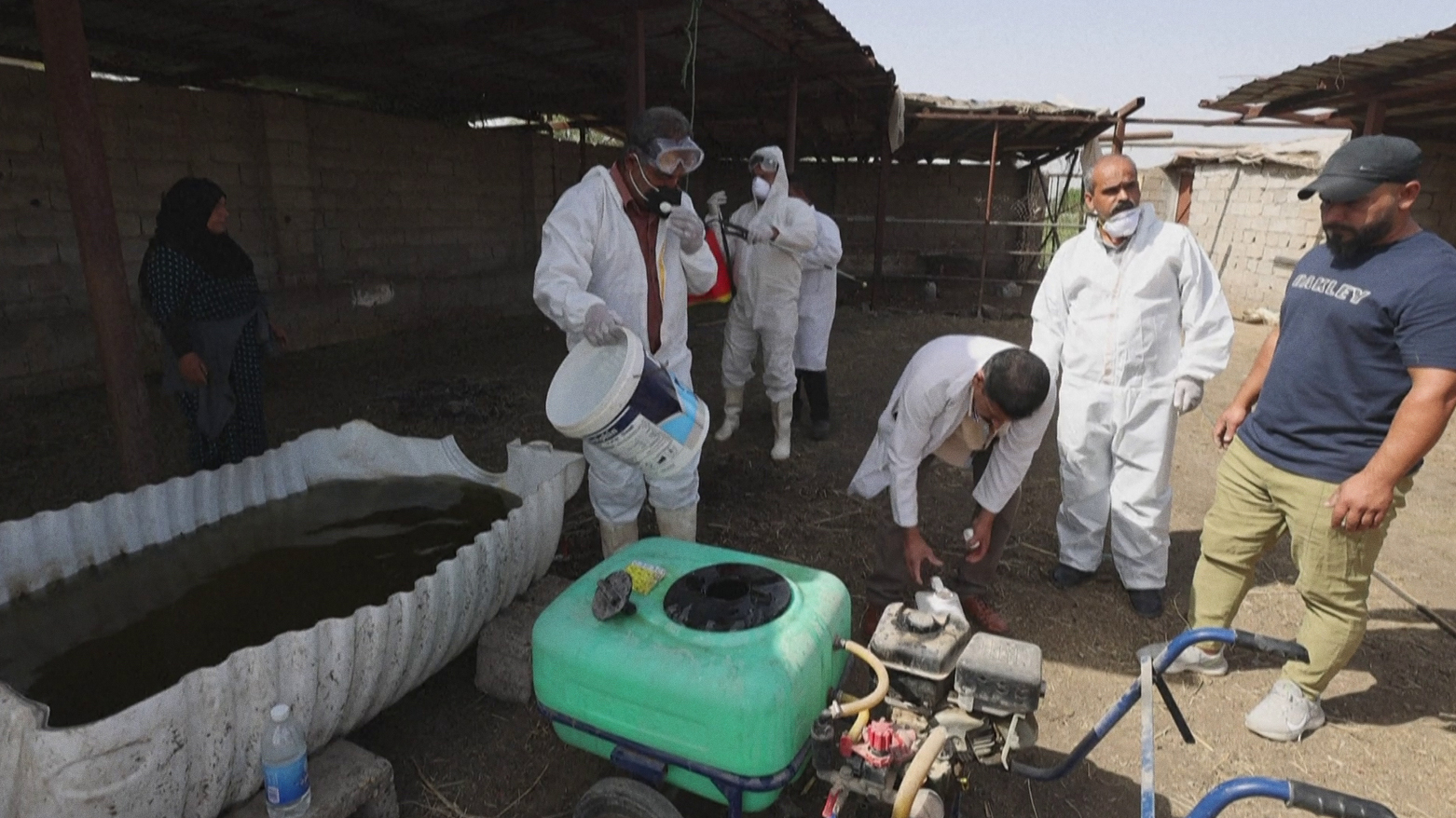Bacterial contamination in Karbala water raises health alarm as authorities warn of serious risks
Bacterial contamination found in Karbala’s water supply, health authorities warn. Tests show Pseudomonas bacteria and high turbidity, posing serious public health risks. Iraq faces chronic water safety issues due to pollution and infrastructure neglect.

Erbil (Kurdistan 24) – The Karbala Health Directorate announced Thursday that tests conducted on water samples from treatment plants in the province revealed bacterial contamination, raising fresh concerns about public health and water safety in Iraq.
In a statement, the directorate confirmed that chemical and biological analyses identified the presence of Pseudomonas bacteria in the public water supply. The tests also showed a significant increase in turbidity levels, which officials said poses “a direct threat to public health and to the quality of water delivered to residents.”
The directorate emphasized that tap water remains the main source of drinking and household consumption for the majority of Karbala’s population, underscoring the urgency of the findings.
This revelation comes as Iraq continues to face chronic challenges with its water infrastructure. Many regions across the country struggle with recurrent shortages and contamination, exacerbated by environmental pollution, mismanagement of resources, and climate-induced drought.
The Iraqi Ministry of Health has repeatedly stressed the need for routine monitoring of filtration stations and regular laboratory checks to ensure that water is free from bacterial and chemical pollutants.
Health experts warn that the spread of bacteria such as Pseudomonas can trigger a range of medical complications, including intestinal infections and respiratory illnesses. Children, the elderly, and individuals with weakened immune systems are considered particularly vulnerable.
The crisis in Karbala reflects a broader, systemic issue. Iraq’s rivers, which are the country’s primary water sources, are facing what experts describe as catastrophic pollution. Officials cite untreated sewage, medical waste, and industrial discharge as primary drivers of contamination.
United Nations statistics indicate that only around half of Iraq’s 43 million citizens have access to potable water. The problem is compounded by dwindling water levels caused by prolonged drought, climate change, and disputes with neighboring countries over water shares.
Khalid Shammal, spokesman for the Ministry of Water Resources, said that even state institutions contribute to the crisis: “The strange thing is that the majority of government departments are themselves responsible for this pollution. Sewage departments dump large volumes into the Tigris and Euphrates without full treatment, or after minimal treatment.”
He added that most hospitals located along rivers discharge their waste directly into the water, describing the practice as “dangerous and catastrophic.”
Industrial facilities, including petrochemical plants and power generation stations, as well as agricultural activities using toxic fertilizers, also contribute heavily to the pollution.
With Iraq’s population continuing to grow and water resources under severe strain, public health experts warn of worsening outbreaks of waterborne diseases unless urgent measures are taken. The contamination in Karbala has amplified calls for stronger oversight, investment in infrastructure, and stricter enforcement against entities polluting the rivers.
As the Karbala Health Directorate urged immediate precautions, the discovery of bacterial contamination has once again spotlighted Iraq’s deepening water crisis, which threatens millions of citizens and underscores the urgent need for comprehensive reforms.